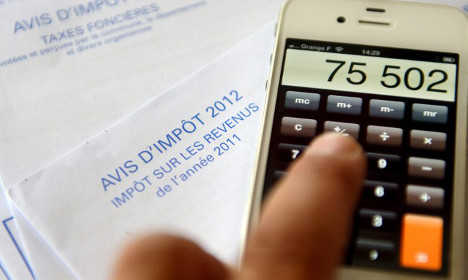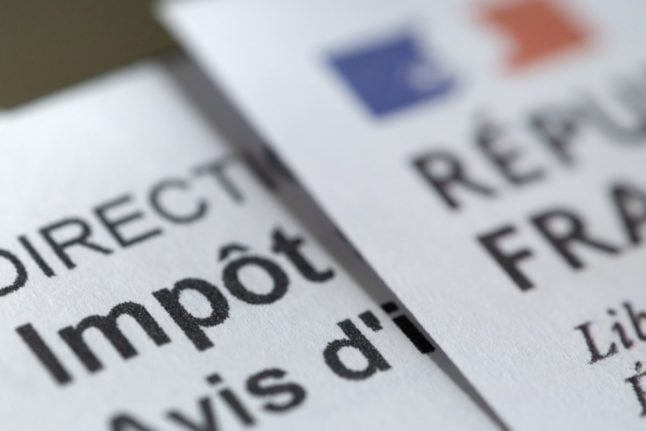France’s tax revenues rose once again in 2014, meaning the French face the second highest tax burden in the world.
The word tax has of course long been synonymous with France and confirmation of why became clear in the latest OECD study on countries' tax revenues.
The study, which looks at the tax burden of the each of the developed countries in the OECD, showed that France’s tax receipts had risen once again in 2014 by 0.2 percent.
Tax revenues in France now stand at 45.2 percent of the country’s GDP.
However that wasn’t enough to put France top of the table.
The title for the OECD country with highest tax burden in the world goes to Denmark, where tax revenues are worth 50.9 percent of GDP.
After France came Belgium where tax revenues were worth 44.7 percent of GDP in 2014. In Germany the percentage was 36.1 percent – down from 36.5 percent in 2013, the UK was 32.6 percent and the United States was just 26 percent – fourth from the bottom of the table.
The average for the OECD countries is 34.4 percent.
While Germany has a lower tax burden than France, it earns more through income tax and levies on consumption. However the French tax man pulls in more than his German counterpart through taxes on companies and welfare charges.
The study shows that after dips in tax revenues between 2007 and 2009 caused by the financial crisis, the percentage of tax burden has risen again to its highest level since 1965.
France's high tax rates have often been blamed for why so many French seek to head abroad.



 Please whitelist us to continue reading.
Please whitelist us to continue reading.
Member comments